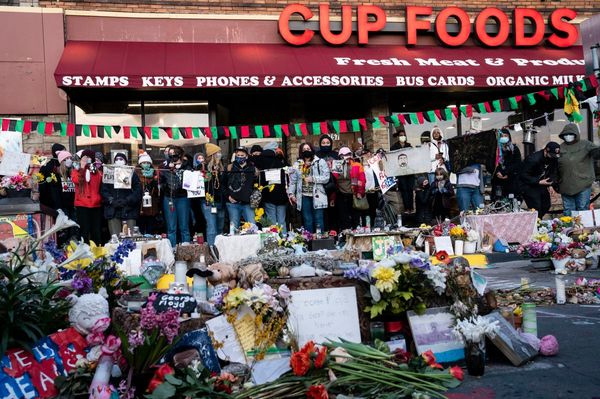
Tehran (AFP) - A Tehran court on Tuesday sentenced to death an Iranian-German dual national accused of being the leader of a "terrorist" group behind a deadly 2008 mosque bombing, the judiciary said.
"The Tehran Revolutionary Court sentenced Jamshid Sharmahd, the leader of the Tondar terrorist group, to death on the charge of corruption on earth through planning and directing terrorist acts," the judiciary's Mizan Online news agency reported.
Mizan said Iran-born Sharmahd could appeal against his death sentence before the supreme court.
"The trial of this case was held in seven sessions in the presence of the accused and his lawyer, the plaintiffs and their families," it said.
"According to the documents of the case, Sharmahd planned to commit 23 terrorist acts, of which he succeeded in five including the bombing of a mosque in (the southern city of) Shiraz on April 12, 2008, which killed 14 people and wounded 300 others."
Iranian authorities announced in August 2020 that Sharmahd, 67, who is also a German national and a US resident, was arrested in what they described as a "complex operation" without specifying how, where or when he was seized.
His family say that he was abducted by the Iranian security services while in transit in Dubai and then brought under duress to Iran.
The group, he is accused of leading, aims to topple the Islamic republic and is outlawed as a terrorist organisation by Iran.
Tondar, which means "thunder" in Farsi, is also known as the Kingdom Assembly of Iran.
Prosecutors had also accused Sharmahd of having established contact with "FBI and CIA officers" and of having "attempted to contact Israeli Mossad agents".
In 2009, Iran convicted and hanged three men for the Shiraz bombing, claiming they had links to the monarchist group and had taken their orders from "an Iranian CIA agent" based in the US in an attempt to assassinate a senior official in Iran.
In 2010, two other alleged members of the group, Mohammad Reza Ali Zamani and Arash Rahmanipour, who, according to Tehran, "confessed to planning to assassinate officials", were tried, convicted and hanged.
Iran has criticised its arch-enemy Washington for having welcomed Sharmahd, accusing it "of supporting known terrorists who have claimed responsibility for several terrorist acts" in Iran.
Sharmahd, whose dual nationality is not recognised under Iranian law, grew up in an Iranian-German family and moved in 2003 to California, where he reportedly made statements hostile to both Islam and the Islamic republic on Farsi-language television channels based outside Iran.
Rift with EU
The sentence was announced just a day after the European Union imposed fresh sanctions on Iran for its response to protests triggered by the mid-September death in custody of Mahsa Amini, a 22-year-old Iranian Kurd arrested for an alleged breach of the country's strict dress code for women.
The measures, that targeted 32 individuals and two entities, are the fifth package of sanctions imposed by the bloc on Iran in the past several months.
At least 16 Westerners are detained in Iran, most of them dual nationals.
Iran has carried out several executions in recent months that have sparked international outcry.In mid-January, it executed Iranian-British dual national Alireza Akbari, a former Iranian official, after convicting him of spying.
In December, the judiciary announced Iranian-Swedish dissident Habib Chaab had been sentenced to death on the charge of "corruption on earth for planning and carrying out terrorist operations and destroying public property".
He was reported to be the leader of the Arab Struggle Movement for the Liberation of Ahvaz (ASMLA), which Iran has also designated as a terror group.
Chaab disappeared during a visit to Turkey in October 2020 and a month later appeared on Iranian state television.He was accused of masterminding an attack in September 2018 on a military parade in the city of Ahvaz that killed at least 29 people.







